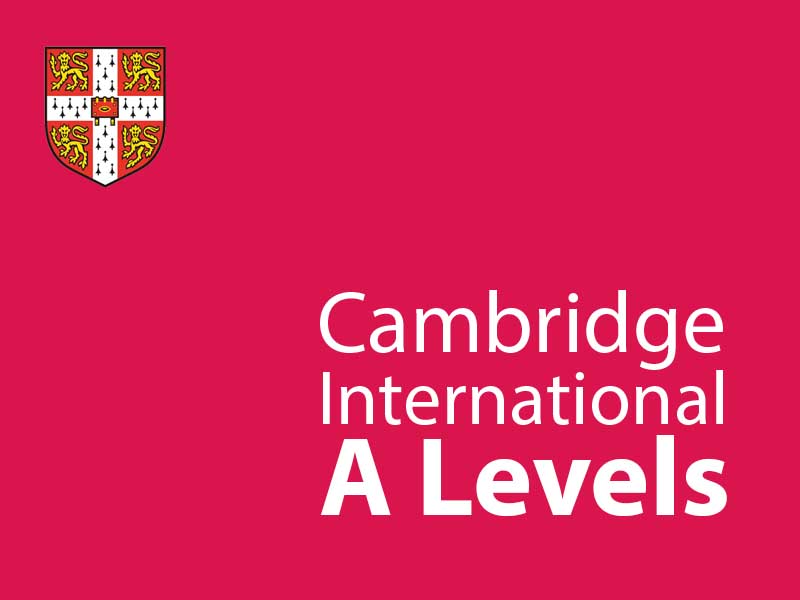You are staring at a subject list and wondering how many A Levels you can handle before university applications arrive. Some students push for extra subjects and even pick the Hardest A Levels like Further Mathematics or Chemistry to boost UCAS points, but exam entries, study hours, and overall course load can stack up fast.
This guide breaks down subject choices, time management, retake options, and university requirements so you can gain a clear understanding of the maximum number of A Levels you can realistically and effectively take.
To reach that goal, Ucademy offers online tutoring UK that helps you plan subject combinations, manage study hours, and map a realistic A-level load so you make a confident, informed choice.
How Many A Levels Can You Take?

You can take up to five A Levels, but most students choose to take three. Taking more than three is possible but demanding, and universities generally require only three A Levels for admission, not giving extra credit for additional subjects.
The usual practice is to select three A Levels, as this matches the typical university entry requirements across the UK. A small number of students opt for four, and only a very few attempt five, which requires careful consideration because of the heavy workload and stress involved.
Quality is more important than quantity; it's better to achieve top grades in three A Levels than to struggle with more subjects. Generally, a set of strong grades (e.g., AAA) in fewer subjects is considered more favourable than average grades spread across more.
Most schools limit students to a maximum of four or five A Levels, as taking more is very rare and not usually supported, given the demands of the courses and the university application process.
When deciding how many A Levels to take, consider:
University Course Requirements
Research the specific entry requirements of the degree you want, since most require three A Levels; only a few courses might ask for four.
Workload and Time Management
A Levels demand significant study outside the classroom; taking more than three means balancing studies with other commitments and maintaining wellbeing.
Your Strengths and Interests
Choose subjects you enjoy and excel in to increase your chances of high grades.
Advice from Teachers
They can provide personalised guidance suited to your academic ability and future ambitions.
Related Reading
- A Levels vs GCSE
- A Levels Needed for Engineering
- What to do If You Fail A Levels
- A Level Grading System
How Do A Levels Work?

A-Levels, or Advanced Level qualifications, are crucial stepping stones for students aiming to enter university, higher apprenticeships, or specific career paths. Generally, you need good A-Level results, or equivalent qualifications such as BTEC Level 3s, to secure a university place or further education opportunity. Employers and apprenticeships often expect at least two A-Levels before considering applicants.
Students typically study a minimum of three A-Level subjects, although they may take up to five. Choices for A-Level subjects are usually made before March of Year 11, and acceptance onto these courses depends heavily on GCSE results. While it’s possible to switch subjects in Year 12, doing so late can be challenging due to catching up on missed content, which might impact exam performance.
A-Level studies span two years: Year 12 and Year 13. In Year 12, students can opt to take an AS Level alongside their A-Levels. This AS Level can either be dropped after the first year or continued into Year 13 to complete a full A-Level. However, AS Levels no longer contribute to the final A-Level grades since the reforms in 2015. This means taking an AS Level doesn’t affect your final A-Level marks, so some students prefer focusing on just three full A-Levels for the best results.
Although not included in final A-Level grades, AS Levels can still be helpful because they carry UCAS Tariff points, which count towards university applications. Different universities have varying admissions criteria; about a third consider total UCAS points, whereas prestigious universities like Oxford and Cambridge focus primarily on individual A-Level grades. Therefore, taking AS Levels might benefit students applying to certain universities but may be less advantageous for others.
To study A-Level subjects, students generally need at least five GCSE passes at grades 9 to 4, including compulsory Maths and English. Some colleges recommend achieving at least a grade 6 in related GCSE subjects before proceeding with them at A-Level, but these are guidelines rather than strict requirements.
How to Choose Your A-Levels

Choosing your A-Level subjects is an essential step on your educational journey, but it doesn't have to be overwhelming. Your choice largely depends on your future goals and personal interests. Even if you aren’t sure of your entire career path yet, there are clear ways to pick the best subjects for you.
Reflect on Your Interests and Future Plans
Before deciding, think about what you enjoy learning and what sparks your passion. Your A-Level choices should align with your strengths and the kind of work or study you see yourself doing shortly. Whether you plan to attend university, pursue a creative course, or apply for an apprenticeship, selecting subjects relevant to your ambitions will set you on the right track.
Plan for University
If higher education is your goal, the subjects you take can influence your university options and degree choices. Many universities have specific subject requirements for certain courses. For example, to study Medicine, you’ll typically need Chemistry, Biology, and either Maths or Physics. Likewise, if you want to study Architecture, Maths is often essential alongside design-based subjects.
The Russell Group universities, known for their academic excellence, provide tools to help check if your chosen A-Level subjects match the degrees you want. This means you can see if your current interests align with your preferred university courses. Notably, some degrees, like Aeronautical Engineering, require subjects such as Physics and Maths.
Link A-Levels to Your Career
Your chosen career may also shape your A-Level decisions. Many professions require you to have studied specific subjects at A-Level to be eligible for the relevant university courses or apprenticeships. For instance, aspiring midwives generally need at least two or three A-Levels, often including Biology. Similarly, future clinical psychologists should consider taking a science or mathematics subject to prepare for their degree.
It’s worth noting that changing direction later is possible. Someone could switch fields by taking additional A-Levels. However, this means more time and effort, so if you already have a clear idea of your career path, focus on the appropriate subjects now.
Balance Ambition and Enjoyment
While it’s important to consider your goals, don’t forget to choose subjects you enjoy and can be motivated to study. Doing well in three or four A-Level courses is more important than simply choosing popular or prestigious subjects that do not interest you. Passion and success go hand in hand.
With careful thought, your A-Level choices will support your aspirations and open doors to exciting opportunities. For additional guidance and tailored advice on selecting the best A-Levels, platforms like Ucademy offer expert support to help you navigate these critical decisions confidently.
Our proven British Curriculum methodology has helped thousands of students achieve top grades, with expert tutors from top universities like Oxford and Cambridge guiding every step; Ucademy takes the confusion out of GCSEs, A levels, 11 plus, and university applications by creating a personalised roadmap tailored to your child and by providing the structured accountability busy parents need. Explore our online tutoring UK services and book a free consultation today to receive a university readiness audit and action plan that puts your child on track to reach their academic goals.
Best A-Level Subject Combinations to Take Together

When choosing A-Level subjects, it’s essential to consider how they complement each other and align with your future degree and career aspirations. Here are some of the best A-Level combinations tailored to popular university courses, explained clearly to help you make informed decisions.
Business, Economics, and Maths
For those interested in Business, Finance, or Economics degrees, combining Business Studies or Economics with Maths is ideal. Maths provides the essential quantitative skills needed for financial analysis and economic modelling. Importantly, avoid taking both Business Studies and Economics together since their overlap might limit university acceptance. Adding a humanities subject like English Literature or History can broaden your academic experience, or you could opt for Statistics to deepen your mathematical knowledge.
Sciences for Medicine and Pharmacy
Medicine and Pharmacy applicants should consider Chemistry and Biology as foundational subjects. Adding Physics or Maths is usually essential since medical and pharmaceutical studies depend heavily on understanding physical and mathematical principles underlying biological processes. This trio is highly competitive but indispensable for admission to these demanding courses.
Engineering Pathways with Maths, Physics, and Chemistry
Engineering degrees require strong skills in Maths and Physics, often complemented by Chemistry, depending on the specific field. Maths develops problem-solving and calculation abilities, while Physics covers critical theoretical concepts. Chemistry is particularly relevant for chemical and biochemical engineering branches. Taking all three subjects provides a robust preparation for the technical challenges of engineering studies.
Law and Related Degrees
A-Level combinations for Law often include English Literature, History, and Maths. English sharpens analytical and communication skills vital for legal studies. History teaches you to assess incomplete information critically and construct logical arguments. Maths enhances your logical reasoning and problem-solving capabilities. These subjects collectively prepare you well for the information-dense and analytical nature of law degrees.
For Architecture Enthusiasts
Studying Architecture benefits from a blend of technical and creative subjects. Maths and Physics provide the essential foundation for understanding structural planning and spatial reasoning. Including Art (or Art and Design) is crucial to develop your design skills and prepare a portfolio, which is often required for Architecture course applications. Additional combinations include Design and Technology, reflecting the interdisciplinary nature of architecture.
General Advice
Always check specific university entry requirements for your chosen course, as some may have particular subject prerequisites. Balancing subjects that play to your strengths and interests will also help you excel. Combining rigorous academic subjects with creative or humanities areas can give you a broad skill set attractive to universities and employers alike.
Selecting the right A-Level subjects is about matching your academic interests with the demands and skills required by your intended degree path. The combinations above offer strong, credible guidance rooted in current university expectations and typical career pathways.
Related Reading
- Is Maths A Level Hard
- Is IB Harder than A Levels
- Is History A Level Hard
- Is Geography A Level Hard
- How to Get an a in a Level Chemistry
Why Opt for More than Three A-Levels?

Choosing to take more than three A-Level subjects is not a familiar path, but it can offer distinct advantages depending on your goals and interests. Although universities usually do not require more than three A-Levels for admission, there are several valid reasons to consider studying extra subjects.
Keeping Your University Options Open
Sometimes it’s challenging to decide on a single university course, especially if you have diverse academic interests. Taking more than three A-Levels can keep multiple pathways open. For example, if you are passionate about French Literature but also interested in studying Electrical Engineering, taking A-Levels in French, Maths, Physics, and Chemistry can allow you to apply for either subject. This flexibility can be invaluable if you are still unsure about your future specialism.
Using AS Levels Strategically
The introduction of the reformed AS Level means it is entirely separate from the full A-Level grade. This allows you to take more subjects during Year 12 without committing to carrying all of them to Year 13. If, after Year 12, you decide to focus on a narrower selection for your A-Levels, you can drop any AS Level subjects without penalty.
For instance, if you realise you want to specialise in engineering rather than languages, you can choose to pursue only the necessary science and maths A-Levels in Year 13.
Following Your Passion for Learning
Some learners take more than three A-Levels simply because they enjoy studying multiple topics. While this enthusiasm is admirable, it is essential to remember that A-Levels are demanding qualifications requiring significant effort and time. Taking four or five subjects can put substantial pressure on your schedule and performance, so you should carefully consider your workload.
Alternative Ways to Impress Universities Beyond A-Levels

Many students believe that excelling in numerous A-Levels is the only way to create a strong university application. However, universities value more than just exam results. Here are credible, verified ways to enhance your university application beyond A-Level performance.
1. Extra Reading
Top universities, including Oxford and Cambridge, appreciate candidates who explore topics beyond their curriculum. For example, if you plan to study English Literature, independently reading books listed in your prospective course syllabus can demonstrate your passion and intellectual curiosity. Following your interests deeply can highlight originality and a genuine love for your subject, both qualities that universities seek.
2. Extended Project Qualification (EPQ)
An EPQ is an excellent way to showcase initiative and passion through a self-directed research project. Ideally, the project should connect to your intended university course or relate thematically in your statement if your subject choice is undecided. Completing an EPQ reflects critical thinking, academic versatility, and thorough understanding, all attributes valued by admissions tutors.
3. Alternative Qualifications
There are recognized alternatives to A-Levels that carry UCAS points and are accepted by many universities:
- BTEC and Cambridge Technical qualifications focus on practical skills and work-related knowledge. They suit students with clear career goals or who prefer applied learning.
- NVQs assess vocational skills through on-the-job tasks and are typically offered at levels equivalent to A-Levels.
- The International Baccalaureate offers a broad academic curriculum recognized worldwide.
- Scottish Highers, Advanced Highers, Access to Higher Education Diplomas, and T Levels provide other credible pathways.
- These alternatives can demonstrate different strengths and suit various learning styles, all valued in higher education.
4. Volunteering and Work Experience
Engaging in volunteering opportunities or relevant work experience can strengthen your application by demonstrating commitment, responsibility, and real-world skills. Volunteering in sectors related to your chosen field shows dedication and practical understanding, qualities that improve your profile beyond academic grades.
5. Writing a Personal Statement
Crafting a personal statement that connects your experiences, projects, and interests with the university's courses and values is crucial. Deep research into the university’s unique offerings, such as particular modules, faculty expertise, or extracurricular opportunities, allows you to tailor your statement and make a compelling case for why you and the university are a perfect fit.
6. Taking a Gap Year
If you’re unsure about going straight to university, a productive gap year involving travel, internships, or volunteering can be valuable. It offers maturity, independence, and new skills that are attractive to university admissions and future employers.
Book a Free Consultation Today | Free University Readiness Audit

Ucademy uses a proven British curriculum method that has helped thousands of students get top grades. Expert tutors from top universities like Oxford and Cambridge guide every step, from topic planning to exam technique. We create a personalised roadmap for GCSEs, A levels, 11 plus, and university applications so the work fits each student’s goals and learning style. Parents get a structured accountability framework that keeps progress visible and on schedule, and you can book a free consultation to claim a free university readiness audit and action plan.
Related Reading
- How to Revise Psychology A Level
- How to Revise Physics A Level
- How to Revise A Level History
- How to Revise a Level Biology






